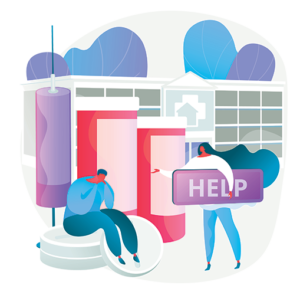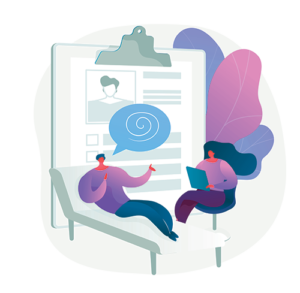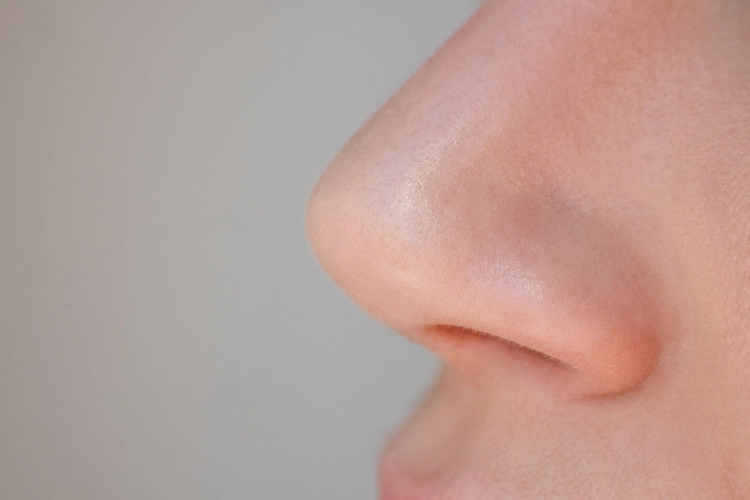Medically reviewed by Dr Alexander Lapa (Psychiatrist)
MBBS, PG Dip Clin Ed, OA Dip CBT, OA Dip Psychology, SCOPE Certified
Without consistent control and the implementation of life-changing skills, predominantly developed through rehab, recovery challenges can arise, influencing relapse.
Although many individuals can avoid this discouraging and difficult phase of recovery, for some, the risk of relapse is high, down to a number of factors, including cravings, stress, incomplete treatment programmes, surrounding environments and strong underlying causes.
With this in mind, no matter the chances of facing these challenges, developing a relapse prevention plan is vital for all when rehabilitating. Through prevention techniques, a positive attitude and the desire to remain sober, relapse prevention is probable.
If you’re currently suffering from an addiction, or you’re concerned that relapse probabilities may be high, here at Addiction Advocates, we can guide you through the next best steps.
Reach out today to see the benefits of addiction treatment, combined with personal relapse prevention techniques.
Get Treatment Advice Now
Speak to an expert
To get in touch with an expert, call or message us using the contact details provided below. Alternatively, you can complete our online enquiry form, and we will get straight back to you.
What is Relapse?
A relapse is where challenges disrupt the recovery process for individuals rehabilitating from drug or alcohol abuse. These challenges can be anything from vulnerabilities, old triggers, ongoing mental health issues, existing cravings or incomplete recovery efforts.
Although relapse is viewed as a negative phase, approximately 40% of the individuals recovering from addiction, do experience a degree of relapse at some stage in their recovery journey.
It is important to remember that addiction recovery can take some time, usually down to the cognitive changes experienced in correlation with substance abuse. Likewise, a dual diagnosis can prolong recovery, exposing individuals to the risks of relapsing.
As relapses are quite common, it is firstly important that those who experience them understand that recovery can still be achieved.
A relapse can be a small disruption, soon followed by further addiction treatment and guidance. Yet, as relapse can jeopardise recovery efforts, relapse prevention techniques will be recommended through initial rehabilitation.
What Are Relapse Triggers?
Addiction triggers, also known as relapse triggers, are those which influence drug and alcohol abuse, and also those that continue the fuelling of such behaviours. Triggers are known to be the catalyst of relapse, where drug and alcohol exposure has become uncontrollable, increasing the risk of returning addictive characteristics.
Most commonly, stress triggers, environmental triggers, emotional triggers, mental health issues, social situations, and peer pressure are known to drive addictive behaviours. However, it is very important to understand your own personal triggers, which will usually be focused on throughout your rehab programme. This is because relapse triggers may look different for everyone, so building a strong understanding of what causes you to personally feel the desire to fall back into addiction habits is incredibly important.
Key stages of relapse

In some small cases, relapses are uncontrollable. However, in the majority of situations, a relapse will build over time, providing the opportunity to spot and diminish those influences.
Relapse triggers will usually present themselves through key stages. These stages of relapse will present themselves in different forms, including emotional, psychological and physical signs.
By understanding the stages of relapse greater, there will be an opportunity to reduce the risk of physical relapse, by implementing relapse prevention techniques.
Emotional relapse
Although physical substance abuse is yet to take place, emotional relapse is where the effort to remain sober is reducing. This may include a lack of motivation to participate in support groups, avoiding personal coping mechanisms or breaking effective self-care routines.
An emotional relapse in most cases is unintentional. Yet, these negative emotions and routines can transition individuals back to old mindsets, opening the door slightly to substance abuse and mental health issues. Without gaining control over an emotional relapse, mental deterioration is likely.
Psychological relapse
A psychological relapse is a dangerous stage to experience as justifications for old habits, such as substance abuse are made. Here is where previous withdrawal symptoms, experiences with drugs or alcohol, and side effects will be downplayed in the mind.
Although efforts may be made to utilise coping mechanisms, those negative thoughts and feelings can result in relapse triggers, where consumption is a strong potential.
Physical relapse
 Without gaining control over a psychological relapse, the physical risk of relapsing is high. Here is where a slip of consumption will take place, sometimes refuelling the addiction cycle.
Without gaining control over a psychological relapse, the physical risk of relapsing is high. Here is where a slip of consumption will take place, sometimes refuelling the addiction cycle.
For a proportion of individuals, a physical relapse will remind them of old negative associations, linked to substance abuse, offering new motivation to remain sober. However, for others, this can make life in recovery very difficult, restarting substance abuse and mental health issues.
Although relapse can take some time to show itself, where physical consumption occurs, it is important that a relapse prevention plan is communicated throughout initial recovery. This will help those suffering and family members spot the signs of relapse, along with positive steps to reverse those negative feelings.
Warning Signs of Relapse
Warning signs can differ for all individuals. However, there are common signs of relapse which are important to spot for yourself or for a loved one. Once these signs have been identified, efforts to reverse relapse triggers, including prevention techniques, should be followed.
Common warning signs of relapse include:
- Isolation from others.
- A change in behaviour or opinion.
- Aims to actively avoid positive coping mechanisms or treatment, such as alcoholics anonymous sessions.
- Ignoring positive self-care routines.
- Interacting with people who drink alcohol or abuse drugs.
- Believing that one drink will be fine.
In some situations, physical recovery can be achieved through addiction treatment. Yet, underlying psychological triggers may fester, soon developing into relapse risks. With this in mind, keeping track of your relationship with drugs and alcohol is very important, helping to promote relapse prevention.
By avoiding relapse prevention techniques, and allowing for old habits to resurface, there’s a risk that recovery efforts can be disrupted, reverting to addictive behaviours.
This can be very disheartening, along with increasing the need for further addiction treatment. Avoid the risk of relapse and a future of addiction by welcoming and following a relapse prevention plan.
Relapse Prevention Tips
Experiencing a relapse isn’t easy. But, there are ways in which you can potentially avoid this experience from happening.
- Be in touch with your emotions – Only you will know how you feel deep down. Being in touch with your emotions, potential changes in your feelings and outlooks can help you easily spot the signs of relapse. The sooner you can spot the signs, the greater you can prevent the consequences and development of relapse risks.
- Understand your personal triggers – Understanding your personal triggers will help you be aware of potential disruptions which may result in relapse. Triggers are personal and can be anything from a place, to a person, to a memory and to an activity.
- Reduce exposure to your triggers – One of our significant relapse prevention tips is to reduce your exposure to your triggers actively. If you’re aware that social situations increase your cravings, be selective with the social situations you partake in, and be alert throughout your exposure.
- Lean on your relapse prevention plan – A relapse prevention plan will be in place to ease your post-rehab transition and guide you through such vulnerabilities. It’s encouraged that you make use of your plan in times of need, along with strengthening its contents as your recovery journey continues.
- Make use of aftercare services – Aftercare services are a customary offering that can help you keep in touch with your emotions, digest cravings and develop your recovery capabilities. Remain accountable and present by embracing aftercare services.
- Be mindful of your lifestyle – Your lifestyle choices can dictate the risk of relapse you may experience. By maintaining a healthy lifestyle, your exposure to drugs and alcohol will be reduced. Yet by also maintaining a mindful lifestyle, you’ll be fully aware of what’s around you, and how you can control your environments, relationships and influences.
- Remember that you are human – Please remember that you’re human and that the majority of those recovering will experience a degree of relapse. The steps you take to prevent relapse will define your future, rather than the relapse itself. Set yourself up for long-term recovery by following our relapse prevention tips.
- Plan ahead – Relapse risks will present themselves. Yet how you respond will dictate your future capabilities to recover. By planning ahead, being present, and by truly taking care of yourself, relapse prevention will be a possibility for you. To reach this point, contact our team at Addiction Advocates to complete rehab and form your own relapse prevention plan.
Creating a Relapse Prevention Plan
Relapse prevention is probable by creating and following positive coping mechanisms. To ensure that these coping mechanisms are able to support you, the creation of a relapse prevention plan should be completed and communicated while at rehab.
This plan will include risky situations and factors which can influence relapse, along with techniques to bypass those relapse triggers. For example, poor mental health and eating can influence old behaviours, which can usually be controlled by following a strict self-care routine.
A relapse prevention plan should be personal and achievable. It should ensure that relapse prevention is realistic, once post-rehab vulnerabilities present themselves.
A plan should also include details to guide individuals if a relapse does occur, including a safe location to go to, a friend to call, stress-relieving strategies, locations of emergency services, crisis lines and reasons why sobriety is desired.
The information found on this page should support an individual in the event of a relapse, along with reducing the potential of developing a physical relapse. If a relapse does occur, reaching out for immediate support is recommended, helping to reduce the degree of damage.
If you do experience a relapse, please do not feel embarrassed or disheartened. Deciding to recover from an addiction is incredibly brave, and it can take some time. The best way you can respond to those challenges is by following a relapse prevention plan while remaining open and honest with those around you.
For guidance surrounding addiction recovery, we can help you here at Addiction Advocates.
References
- [1] 40% of the individuals recovering from addiction, do experience a degree of relapse - https://www.webmd.com/mental-health/addiction/addiction-what-to-know-about-relapse

What do our previous clients think?
Latest News

Everything You Need to Know About the Brain-PACER Study
Addiction is a very complex condition that is difficult to treat. It has psychological and habitual elements, but also involves

How to Overcome FOMO in Recovery
Deciding to start your journey of recovery is something you should be incredibly proud of. It’s a life-changing decision, and

What Does Cocaine Do to Your Nose?
Cocaine is a powerful stimulant drug that is recreationally used for its euphoric effects. However, while it might offer immediate

Are Nightcaps Healthy?
You’ve probably heard of the term ‘nightcap’. In drinking terms, it’s up there with ‘one for the road’ and ‘hair
How We Help
Finding the right treatment for your addiction can be difficult this is why we have created a service which takes the stress away which can be a massive relief when dealing with an addiction.Self Referrals
Suffering with an addiction and being alone can be a horrific scenario for many. Whether you have a drug or alcohol addiction, we're here to help.Family Referrals
Do you have concerns that a loved one may be affected by substance misuse? Have you spotted any signs and symptoms of a drug and alcohol…Friend Referrals
Are you worried that a friend’s alcohol or drug consumption has become out of control? For many individuals, substance abuse starts unintentionally…What We Offer
Free Assessment
This is done to assess what sort of help is needed so we can recommend an addiction treatment service that can provide the best help possible.
All calls are strictly confidential and are carried out by a trained healthcare professional.
No obligation recommendations are made after a full assessment of yourself or loved ones situation is fully made.
Recommendations include specialist addiction treatment programmes in CQC regulated facilities based throughout the UK.
If you are unable to afford private treatment then public healthcare and charities would also be recommended to you.
How We Support You
We have a large number of helpful services available to help give you the best possible support when it comes to dealing with addiction.
Just some of the services we can offer includes:
- Free confidential telephone assessment
- Recommending CQC regulated residential addiction treatment providers
- Arranging for an intervention, if needed
- Insights into how different therapies and evidence based treatments work
- How detoxification works and what is the most safest option
- What type of rehab and detox programmes would be best suited for yourself or loved one
- Recommendations of the best providers in your area
Why Choose Us?
We can help take the stress out of finding an addiction treatment provider by recommending only the best options available that fully suits your criteria.
The help and advice we can provide includes making sure that your journey towards recovery is one that can definitely be achieved.
Taking the step towards recovery can be incredibly tough but we are here to put your concerns at ease by giving you insights into the safety of undertaking residential addiction treatment and how it can put you on the path towards long lasting recovery from addiction.
Our team of advisors have extensive experience and knowledge about the subject of addiction and the treatment provided so if you have any questions then they will be more than happy to help.
Get started today by calling our friendly team today on 0800 012 6088.

